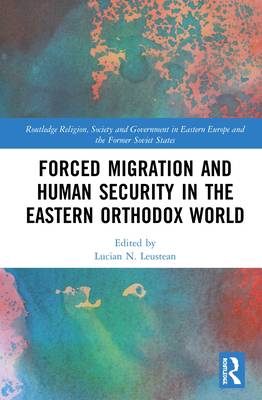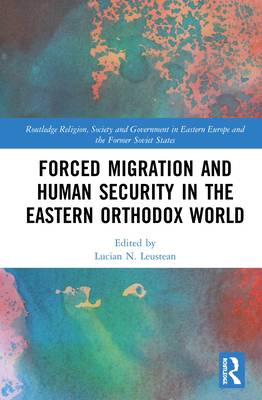
- Afhalen na 1 uur in een winkel met voorraad
- Gratis thuislevering in België vanaf € 30
- Ruim aanbod met 7 miljoen producten
- Afhalen na 1 uur in een winkel met voorraad
- Gratis thuislevering in België vanaf € 30
- Ruim aanbod met 7 miljoen producten
Forced Migration and Human Security in the Eastern Orthodox World
Omschrijving
The conflict in Eastern Ukraine and the European refugee crisis have led to a dramatic increase in forced displacement across Europe. Fleeing war and violence, millions of refugees and internally displaced people face the social and political cultures of the predominantly Christian Orthodox countries in the post-Soviet space and Southeastern Europe. This book examines the ambivalence of Orthodox churches and other religious communities, some of which have provided support to migrants and displaced populations while others have condemned their arrival. How have religious communities and state institutions engaged with forced migration? How has forced migration impacted upon religious practices, values and political structures in the region? In which ways do Orthodox churches promote human security in relation to violence and 'the other'? The book explores these questions by bringing together an international team of scholars to examine extensive material in the former Soviet states (Ukraine, Russia, Georgia and Belarus), Southeastern Europe (Turkey, Greece, Serbia, Bulgaria and Romania), Western Europe and the United States.
Specificaties
Betrokkenen
- Uitgeverij:
Inhoud
- Aantal bladzijden:
- 312
- Taal:
- Engels
- Reeks:
Eigenschappen
- Productcode (EAN):
- 9780815394709
- Verschijningsdatum:
- 11/11/2019
- Uitvoering:
- Hardcover
- Formaat:
- Genaaid
- Afmetingen:
- 160 mm x 236 mm
- Gewicht:
- 612 g

Alleen bij Standaard Boekhandel
Beoordelingen
We publiceren alleen reviews die voldoen aan de voorwaarden voor reviews. Bekijk onze voorwaarden voor reviews.










